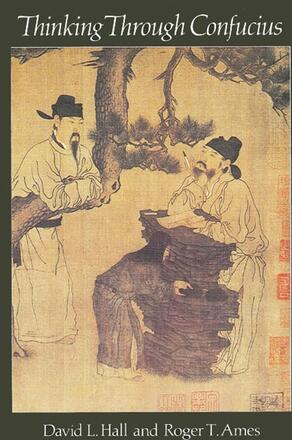
Thinking Through Confucius
Alternative formats available from:
Description
Thinking Through Confucius critically interprets the conceptual structure underlying Confucius' philosophical reflections. It also investigates "thinking," or "philosophy" from the perspective of Confucius. Perhaps the philosophical question of our time is "what is philosophy". The authors suggest that an examination of the Chinese philosophy may provide an alternative definition of philosophy that can be used to address some of the pressing issues of the Western cultural tradition. This book finds an appropriate language for the interpretation of traditional Chinese philosophical thought — a language which is relatively free from the bias and presuppositions of Western philosophy.
David L. Hall is Professor of Philosophy at the University of Texas, and author of The Civilization of Experience: A Whiteheadian Theory of Culture; The Uncertain Phoenix: Adventures Toward a Post-Cultural Sensibility; and Eros and Irony: A Prelude to Philosophical Anarchism. Roger T. Ames, Professor of Philosophy at the University of Hawaii, is author of The Art of Rulership: A Study of Ancient Chinese Political Thought, a translator of classical Chinese texts, and assistant editor of Philosophy East and West.
Reviews
"What I like most about this work is two-fold: the rigor and novelty of its methodological conception and the cogency and inciveness of its execution." — Lik Kuen Tong
"This is a daring book. It develops an unconventional interpretation of Confucius, one which the authors claim is truer to the traditional texts than anything ever written in English (including Wiley and Fingarette). The authors build their case from a close reading of the key Chinese terms of Confucian texts. This painstakingly detailed analysis is always readable, never too technical for a reader who knows no Chinese, but convincing by its thoroughness and its sensitivity." — George Allan